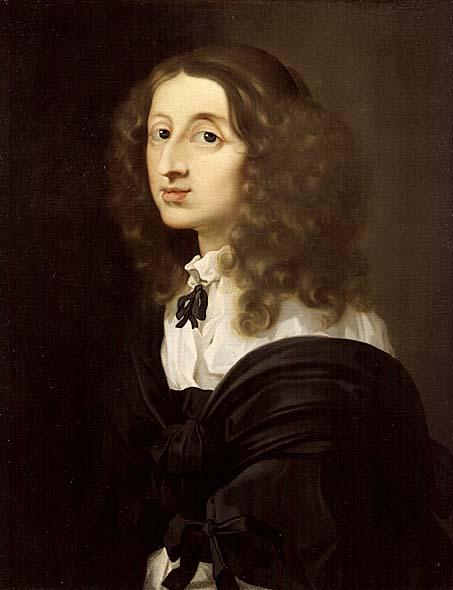Summary
Kristina of Sweden (1626-1689) is one of history's more quirky individuals. Her life departs from the societal norms of her time, and we are privileged enough to have access to a decent amount of information about her life and work.Kristina's skeptical doubts and religious views are just a fewo f the many interesting things in her life. She also was tutored by René Descartes visiting her in Sweden. They are known for having corresponded regarding various philosophical subjects through French Ambassador Chanut. Some even blame Descartes' death indirectly on Kristina because she had him wake up at five o'clock in the morning to tutor her when Descartes typically slept until eleven. (Obviously there are more facts involved, including Descartes contraction of pneumonia.)
After having a nervous breakdown, Kristina began to take steps towards abdication. She would eventually convert to Catholicism, though her religious beliefs still remained fairly heterodoxical. Through her position of authority as the Queen of Sweden, she had seen religion used as a political means, and she continued having many doubts, including being troubled by Church dogma. Eventually she conversed with Jesuits in secret and she corresponded with Catholics as well. Kristina was committed to acting in such a way that accurately reflected her worldview, and so she was drawn to discussions about the nature of reality, good and evil, etc.. Kristina was described as being rather masculine. She would wear male clothing, pursue spheres normally reserved for male members of society, and had a deep, masculine voice. By rejecting female culture, Kristina may have viewed herself as primarily male. She never married and often spoke out against the "feminine sex."
The Queen of Sweden lived to be sixty-three, dying in 1689. In her lifetime she wrote, discussed, and studied the theory of the philosopher's stone (or alchemy), skepticism, stoicism, Catholic mysticism, and linguistics.
Personal Response
Overall, I really enjoyed reading about Kristina Wasa. She was an interesting figure who defied any expectations I might have had of her. (I like to think she was kind of quirky, though she was probably far too unorthodox to be considered simply quirky.) Based on this chapter, I gathered whoit was her father that encouraged her education. After his death, the queen then continued her education, since it was in the best interest of Sweden to have an educated leader. This reminded me of the various other women philosophers we've discussed whose education we can trace back to the father. Often the mother is not mentioned or did not support the education of the daughter.A minor pet peeve I have with the actual chapter is in the discussion of Kristina's philosophical development. Susan Akerman writes, "Matthiae with his strong unionist tendencies is responsible for Kristina's tolerant and critical perspective on religion" (26). When I read this sentence initially, I found it rather off-putting, like Kristina's perspective was not her own. I realize that Akerman may have intended to suggest that she was exposed to such concepts through Matthiae, but I dislike the assertion that they came from him alone. Based on what Kristina did, believed, and explored, I would say that her perspectives on religion went far beyond any "unionist tendencies" she may have been exposed to through the Bishop of Strangnas.
I was struck by Kristina's choice to identify as masculine rather than feminine. Though the chapter does not go into detail about her sexuality, it is hard to ignore Kristina's decision not to get married. Whatever may be assumed about her orientation, she clearly identified masculinity with knowledge and learning. The chapter mentioned several times her educators treated her as a prince, with lessons in "princely" activities. It is almost as if she eventually concluded that to rule, pursue philosophy, or take part in various academic societies, one has to become a man. Though this course, I think, has sought to disprove any such notion, I found it slightly troubling to read in this chapter on Kristina Wasa. I'm not going to try to explain her position away, but it certainly does force me to think about the kind of society she lived in. Given the choice, would philosophy be worth it if it meant I had to reject some other part of myself? I'm not suggesting Kristina did this, but I think it is within the realm of possibility.


No comments:
Post a Comment